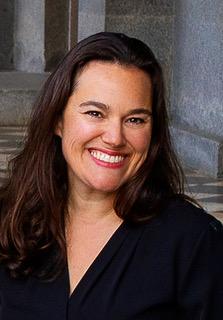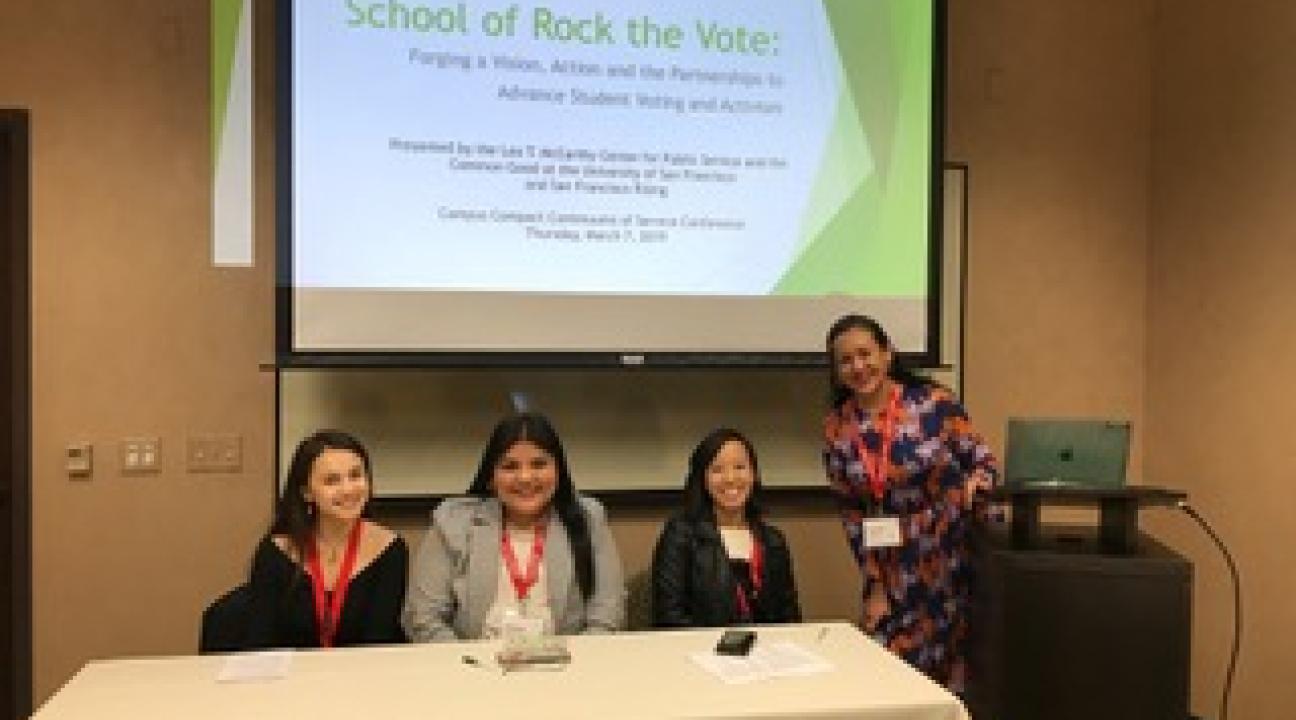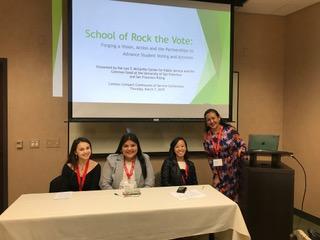Students Want to Vote
At the Campus Compact Western Region Conference in San Diego, CA, I had the opportunity to attend a workshop titled, “School of Rock the Vote: Forming a Vision, Action, and Partnership to Advance Student Voting and Activism.” I chose this session as I think that SSU students do a great job, as evidenced by the AS tables everywhere in advance of the voter registration deadline, getting students to register to vote. This is a hugely important first step, but I was interested in how others on campus could further this drive to increase student civic engagement.
Related: Dr. Jeremy Qualls Presents at Campus Compact’s Biennial Conference in Indianapolis
There were many great conversations during this session, and some significant contributions were made by our own Director of the Center for Community Engagement (CCE), Merith Weisman. Here are some key “take aways” for our campus:
- Voter registration is a starting place
- There are data available on how many of our students actually vote (of course, no data are available on how anybody votes!)
- Civic engagement is enhanced through conversations, and campus is an ideal place for these to take place. These may occur at sessions dedicated to campaign issues, tables encouraging students to vote, evening or late night events, hosting candidates or forums on campus, and many other venues.
- There are many non-partisan, non-profit, and reliable organizations that provide neutral information regarding ballot measures. KQED has a great resource that was mentioned several times, plus we have campus resources available through the CCE and Dr. David McCuan and his students.
- There is often a feeling of “my vote doesn’t matter.” This view can be analyzed in individual conversations regarding pressing issues, but also when considering the broader perspective of Merith Weisman when she said, “why do others try to make it so hard for you to vote if your vote doesn’t matter?”
- Another concern that students have brought up is “why does it matter to me if I am not directly impacted?” The answers given to this question included the common good, human rights, questioning why norms are norms, and whether or not those norms should shift. Additionally, this question demonstrates a misunderstand that the interconnectedness of people is what forms communities. Some communities we know we are a part of and participate in, but there are communities to which we belong where our actions impact the community, regardless of our intention to do so, or even our knowledge of this impact. All of these reasons make every vote important.
- The idea of making voting a social occasion with a “Party to the Poll” was discussed. These parties would lead up to election day, as well, encouraging voters to become informed of the issues, but also being social and fun.
Related: Welcome Jeremy & Missy!
The primary takeaway message from this event was that students want to vote, but they need accessible information about ballot measures and candidates. Further, if students are learning to be activists by engaging in the world around them, activists vote.

Author: Missy Garvin



